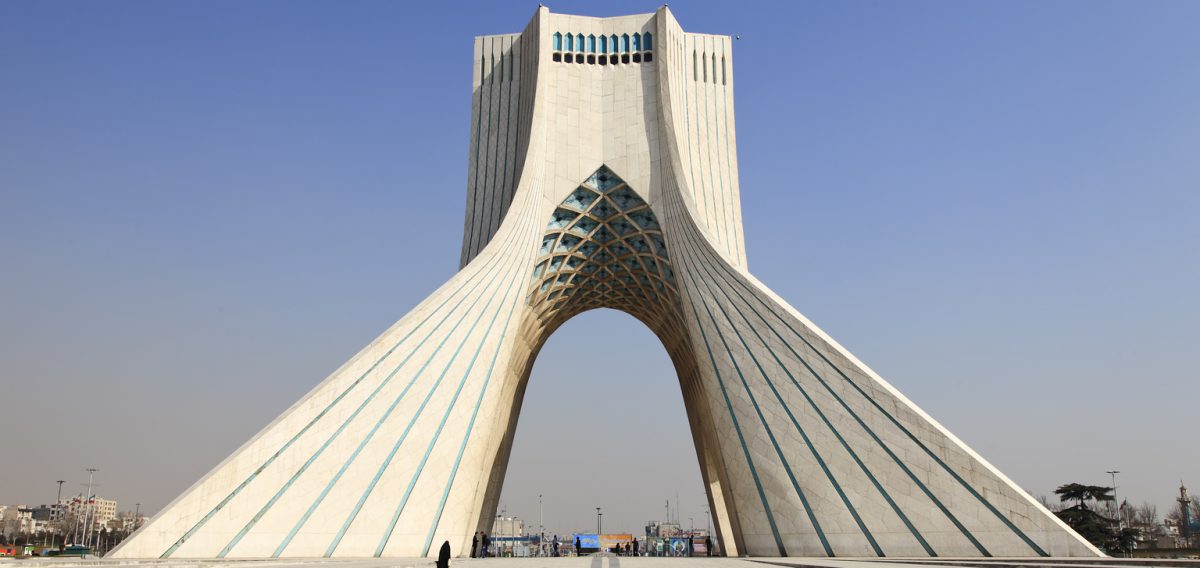As Donald Trump’s administration takes shape, two things are patently obvious: domestically, the United States will be governed by a group of mega-rich oligarchs; and abroad, Iran will once again be public enemy number one.
So far, this has led to rampant speculation about what the Trump administration will do with the Iran nuclear deal. Most Iran specialists, myself included, have urged Mr. Trump to keep the deal if not in its current format, then at least something similar. But this appears highly unlikely given the rhetoric of proposed appointees like Michael Flynn as National Security Advisor, Mike Pompeo as CIA director, and James “Mad Dog” Mattis as Secretary of Defense.
But beyond the deal, what does all this mean from Iran’s perspective? Nothing good for those who still believe in the value of diplomacy.
Politically, hardliner politicians have already been emboldened by Trump’s victory. To them, his ascendancy conveys a larger message about the United States’ character and credibility. Trump, they contend, is the true face of America; his anger, bellicosity, and dishonesty far more authentic than the faux-statesmanship of Barack Obama. They are using Trump and his appointees’ words as ammunition against the Rouhani government by casting the Iranian president’s decision to negotiate with the United States over the fate of Iran’s nuclear program as a fateful error that has fundamentally weakened Iran.
Economically, non-nuclear sanctions are virtually guaranteed to remain in place, if not expand. The efficacy of these sanctions remains somewhat uncertain, however, since it is difficult to anticipate what the European reaction will be to this effort. The key question will be whether European companies eager to do business in Iran will abandon their plans when faced with possible American retaliation. Airbus’s rush to deliver Iran its first plane before January 20 gives some indication both of how eager European companies are to conduct business with Iran, and how wary they are of the uncertainty that surrounds the Trump administration’s intentions regarding Iran.
Most serious, however, are the potential military consequences. Several commentators have already pointed out the similarities between the incoming Trump appointees’ views on Iran and those of the George W. Bush administration on Iraq in the months following the September 11 attacks. There is a severe risk that the Trump administration’s confirmation bias on Iran will result in ascribing any regional conflagrations to the deviant machinations of the Islamic Republic, leading them to begin building the case for war with Iran as the only available response to the Iranian threat.
A great deal rests on the fate of the Rouhani administration in the upcoming Iranian presidential elections scheduled to take place on May 19, 2017. Rouhani has already intensified his rhetoric toward the United States in an effort to counter conservative critics who are painting him as weak on foreign policy. Following the recent renewal of the Iran Sanctions Act, he vowed a “strong response” and “decisive action” if the United States fails to adhere to the nuclear accord. He also said, “America is our enemy; we have no doubt about this.” Rouhani’s directive to Ali Akbar Salehi, head of the Iranian Atomic Energy Organization, to begin production on a nuclear-fueled propulsion system for naval ships represents the first tangible step toward testing the resolve of the United States to maintain its commitment to the nuclear accord.
Ultimately, Rouhani’s appeal rests largely on the premise that the nuclear deal would offer an economic boon for Iran, so it remains unlikely that he will take any action that extends too far beyond what can reasonably be deemed symbolic. That could change if Rouhani fails in his bid for reelection and is replaced by a hardline conservative administration that is more willing to respond aggressively to American threats, consequences be damned. Potential Iranian responses include heightened military activity in the Persian Gulf, including more aggressive naval and air force exercises in close proximity to United States vessels; increased funding for allies in proxy conflicts, including Hezbollah in Syria, Shiite militias Iraq, and the Houthis in Yemen; or an expansion of missile development programs or nuclear-related activities. This could lead to an action-reaction spiral between the United States and Iran, in which both sides’ animus not only undoes the progress of diplomacy achieved during the Obama-Rouhani overlap, but launches a race to the bottom that entrenches hardline positions on both sides and sets the stage for direct military confrontation in the future.
